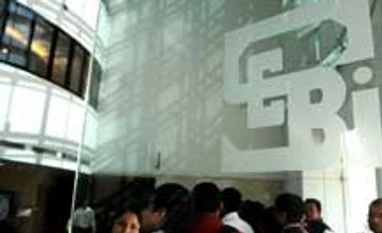In a discussion paper — ‘Revisiting capital raising process’ — issued on Thursday, the market regulator suggested a timeline reduction would be possible if cheque payments are done away with.
“...The post issue timelines will reduce from T+12 days to T+6 days. Once the process gets stabilised, timelines can be further curtailed to T+3/2 days. Further, on account of reduction in printing of application forms, the overall cost of public issues will also come down,” said the Securities and Exchange Board of India (Sebi).
Further, the paper suggests making Asba (Application Supported by Blocked Amount) mandatory for retail investors, saying it would aid in reducing IPO timelines further by eliminating cheques from the process of bidding for an IPO. Asba is currently mandatory for all non-retail investors in an IPO.
The paper proposed to ease the criteria for 'fast-track' approvals for follow-on public offerings (FPOs) and rights.
It suggested eligibility of companies with a market capitalisation of anywhere between Rs 250 crore to Rs 3,000 crore. Currently, the minimum market capitalisation requirement for fast-track IPOs is Rs 3,000 crore.
“...Even if the public float criterion is relaxed to Rs 1,000 crore, only 359 companies would be eligible. Hence, this may not serve the intended purpose of making large number of issuers eligible for rights issue through fast track route,” said the paper.
In addition, the paper also suggested fast-track approvals for central public sector enterprises (CPSEs) for achieving 25 per cent public float.
“Also, in a case where a CPSE is not able to comply with any of these conditions, Sebi may, based on the merits of the case, consider granting exemption,” said the paper.
“...The post issue timelines will reduce from T+12 days to T+6 days. Once the process gets stabilised, timelines can be further curtailed to T+3/2 days. Further, on account of reduction in printing of application forms, the overall cost of public issues will also come down,” said the Securities and Exchange Board of India (Sebi).
Further, the paper suggests making Asba (Application Supported by Blocked Amount) mandatory for retail investors, saying it would aid in reducing IPO timelines further by eliminating cheques from the process of bidding for an IPO. Asba is currently mandatory for all non-retail investors in an IPO.
Also Read
A proposal to use mobile technology for making bids in public issues was under discussion, the paper said.
The paper proposed to ease the criteria for 'fast-track' approvals for follow-on public offerings (FPOs) and rights.
It suggested eligibility of companies with a market capitalisation of anywhere between Rs 250 crore to Rs 3,000 crore. Currently, the minimum market capitalisation requirement for fast-track IPOs is Rs 3,000 crore.
“...Even if the public float criterion is relaxed to Rs 1,000 crore, only 359 companies would be eligible. Hence, this may not serve the intended purpose of making large number of issuers eligible for rights issue through fast track route,” said the paper.
In addition, the paper also suggested fast-track approvals for central public sector enterprises (CPSEs) for achieving 25 per cent public float.
“Also, in a case where a CPSE is not able to comply with any of these conditions, Sebi may, based on the merits of the case, consider granting exemption,” said the paper.
)